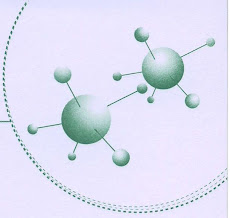Human Growth Hormone (HGH) Information and Key Findings
Human growth hormone was first discovered in 1956 and it's structure was identified in 1972. Before synthetic HGH molecules were genetically engineered in 1998, HGH was extracted from cadavers and then injected with needles into the human body.Over the past 3 decades, there have been a growing number of clinical research studies investigating the capabilities and purported benefits of the human growth hormone.Many researchers have concluded that one of the primary causes of aging is the decrease of HGH human growth hormone production.
According to Dr. Ronald Klatz, M.D., President of the American Academy of Anti-Aging Medicine, "Aging appears to be due in large part to the drastic decline of growth hormone in the body after adulthood."According to HGH human growth hormone research, at age 21, the normal level of circulating HGH is about 10 milligrams per deciliter of blood, but at age 61, it's decreased 80% to only 2 milligrams. It is believed that growth hormone is what grows the cells, bones, muscles and organs, and it is the level of growth hormone after age 30 that slowly robs us of our youth.After age 30, the secretion rate of HGH drops approximately 14% per decade. By 80, most people barely produce enough HGH to build a fingernail, explaining why injuries experienced by seniors take so long to heal.
Human Growth Hormone (HGH) Research - Clinical Studies.
The New England Journal of Medicine published the clinical findings of Daniel Rudman, MD, regarding his HGH human growth hormone research on the anti-aging effects of HGH. His findings were astonishing.
Dr. Rudman studied patients age 61 to 81 at the Medical College of Wisconsin-Milwaukee. After six months, Dr. Rudman observed a reversal of the aging process from 10 to 20 years in the patients who received HGH injections. But in the control group (those who didn't receive HGH injections), the normal aging process continued.
Other HGH human growth hormone clinical research studies performed over the past 30 years have demonstrated that HGH can allow users to lose fat, build muscle mass, improve sexual performance, remove wrinkles, reduce cellulite and increase immune function. HGH is the master hormone which is secreted by the pituitary gland and is responsible for directly and indirectly balancing the body's critical hormones.
Human Growth Hormone (HGH) - Clinical Research Conclusions
"The effects of six months of human growth hormone on lean body mass and adipose-tissue were equivalent in magnitude to the changes incurred during 10-20 years of aging."
Daniel Rudman, M.D., New England Journal of Medicine
"It is possible that chronic physiologic GH and/or IGF-I replacement therapy might reverse (or prevent) some of these "inevitable" sequelae of aging." (Study of GH therapy in the elderly - March 1992.)
V.A. Medical Center and Department of Medicine, Stanford University Medical Center
"Replacement therapy with Growth Hormone has shown beneficial/normalizing effect on parameters such as cardiac and renal function, thyroid hormone metabolism, bone metabolism, sweat secretion, total and regional fuel metabolism and psychological well being..."
Dr. Jorgensen and Dr. Christian of Copenhagen, Denmark, in European Journal of Endocrinology, 1994
"We really have something here which may be able to reverse some of the problems associated with aging."
Dr. Anthony Karpos, M.D.
"Daily Administration of human growth hormone in the first week after trauma would enhance the metabolic status... resulting in reduced morbidity and earlier discharge from hospital."
(May 1992, Journal of Surgery. Vol 111, 495-502.)
Drs. Ramias, Shamos, and Schiller of St. Joseph Hospital Medical Center in Phoenix, AZ
"All adults with growth hormone deficiency should now be considered for growth hormone replacement therapy."
(1995)
Dr. Jake Powrie, M.D. and Dr. Andrew Weissberger, St. Thomas Hospital, London England
"There is no evidence suggestion that Growth Hormone Replacement Therapy causes any unfavorable long term side effects."
(Hormone Research, 1995)
Dr. Rosen, M.D. and Dr. G. Johannsson, M.D. of University Hospital, Goteborg, Sweden
Source: http://www.ghr1000.com/human-growth-hormone.html
Cholesterol
16 years ago
.jpg)



No comments:
Post a Comment